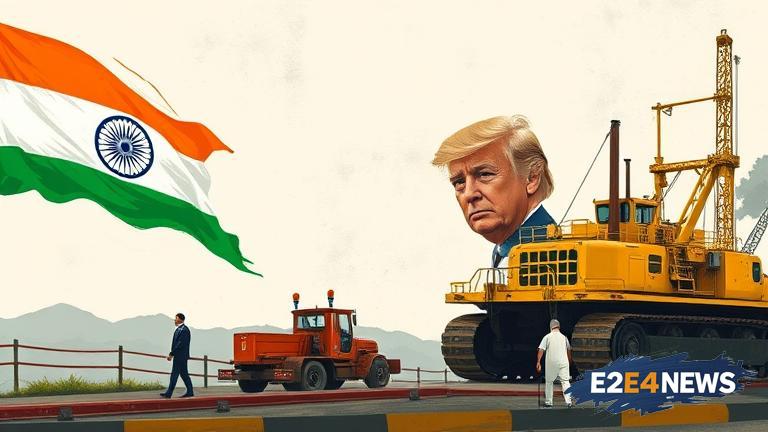The recent statement from former US President Donald Trump has sent shockwaves through the Indian economy, as the country heavily relies on Russian oil imports. With Trump vowing to impose tariffs on countries that continue to buy oil from Russia, India is facing a daunting task of balancing its energy needs with the threat of economic sanctions. The Indian government has been actively engaged in diplomatic efforts to mitigate the situation, but the uncertainty surrounding the tariffs has already started to impact the country’s trade relations. India’s oil imports from Russia have increased significantly since the start of the Ukraine conflict, with the country taking advantage of discounted prices to meet its growing energy demands. However, the proposed tariffs threaten to disrupt this arrangement, forcing India to explore alternative energy sources. The Indian economy is heavily dependent on oil imports, and any disruption to the supply chain could have far-reaching consequences. The government has been working to diversify its energy mix, but the process is slow and fraught with challenges. In the short term, India may be forced to rely on more expensive oil imports from other countries, which could lead to higher fuel prices and increased inflation. The tariffs could also have a negative impact on India’s trade deficit, which is already under pressure due to the country’s large oil import bill. The Indian rupee has been volatile in recent months, and the threat of tariffs could lead to further depreciation. The government has been trying to promote the use of renewable energy sources, but the transition is slow and the country still relies heavily on fossil fuels. The proposed tariffs could provide an opportunity for India to accelerate its transition to cleaner energy sources, but it would require significant investment and infrastructure development. The Indian government has been in talks with other countries to explore alternative energy sources, including the United States, which could provide a more stable and secure supply of oil. However, the tariffs could also lead to a decline in trade relations between India and the US, which could have long-term consequences for the Indian economy. The situation is complex and multifaceted, with various stakeholders and interests at play. The Indian government would need to carefully navigate the situation to minimize the impact of the tariffs and ensure the country’s energy security. The proposed tariffs could also have geopolitical implications, with India’s relations with Russia and the US likely to be impacted. The country would need to balance its strategic interests with its economic needs, which could be a challenging task. The Indian economy is resilient and has weathered many storms in the past, but the threat of tariffs poses a significant challenge. The government would need to take proactive measures to mitigate the impact and ensure the country’s economic stability. The situation is being closely watched by investors and economists, who are waiting to see how the situation unfolds. The Indian government has been working to promote economic growth and development, but the tariffs could pose a significant obstacle. The country would need to find a way to balance its economic needs with its strategic interests, which could be a difficult task. The proposed tariffs could lead to a decline in investor sentiment, which could have long-term consequences for the Indian economy. The government would need to take measures to boost investor confidence and promote economic growth, which could be a challenging task.





